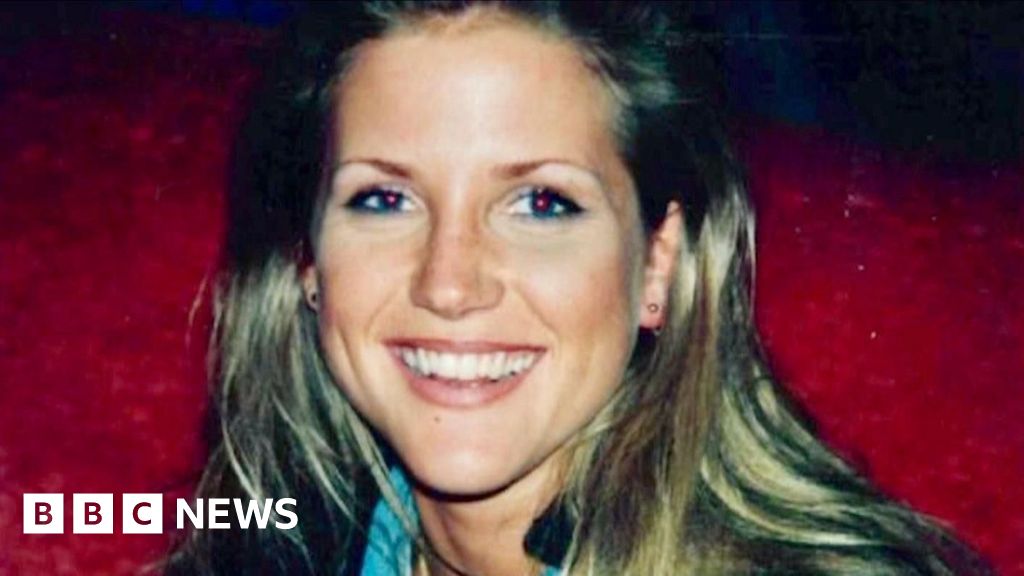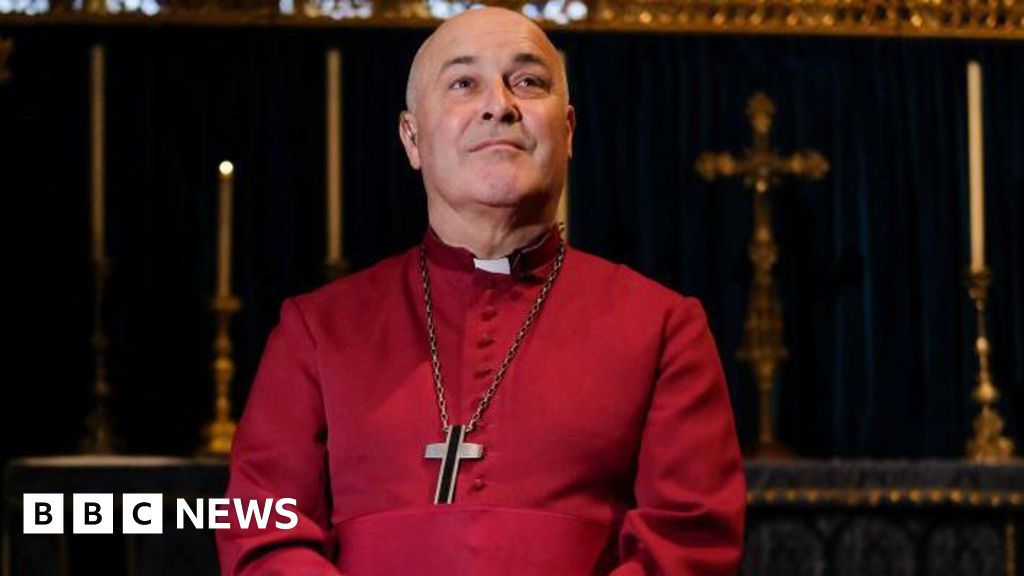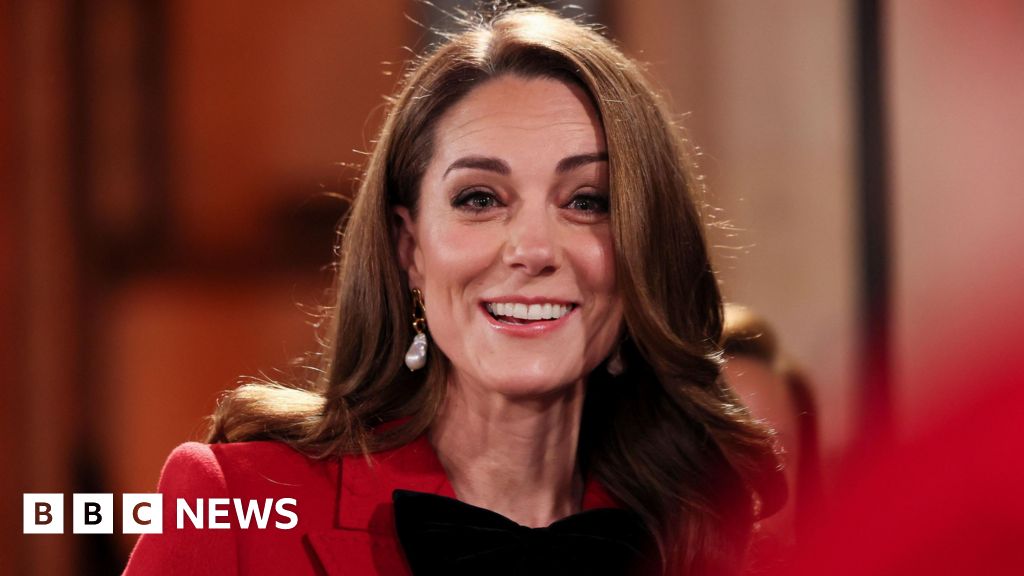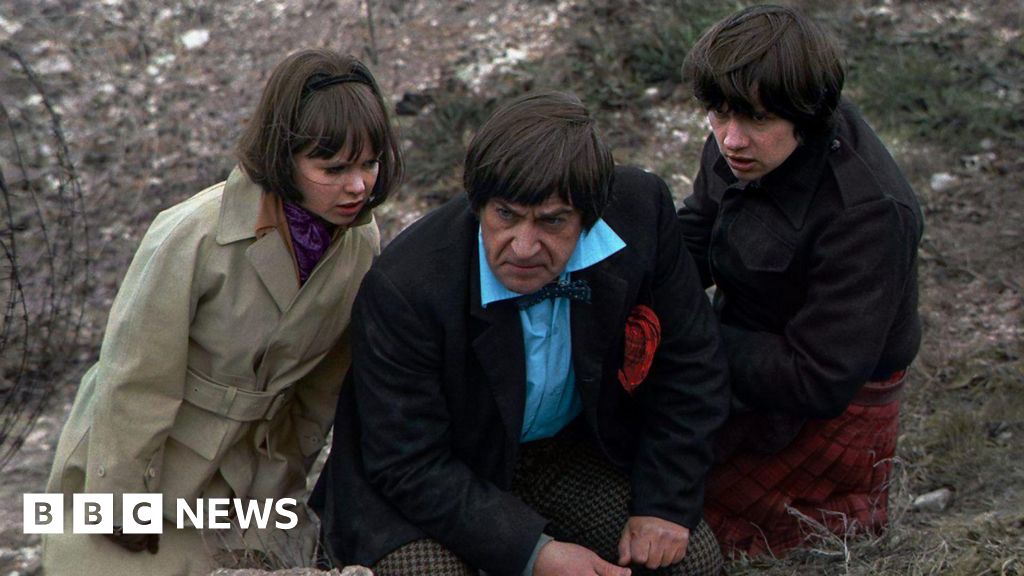Just now
By Louise Parry & Laurence Cawley, BBC News, in St Albans

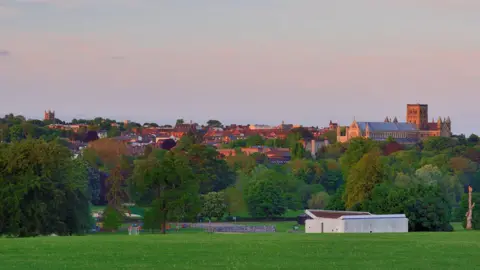 Getty Images
Getty Images
What do those priced out of home ownership in the Hertfordshire city want to hear from those seeking their vote?
The average cost of a house in St Albans is 17 times greater than the average yearly earnings of those who live there, making it the least affordable place to live outside of central London. What do those priced out of home ownership in the Hertfordshire city want to hear from those seeking their vote?
Yasmine Alderman loves St Albans.
The 27-year-old mother-of-three (with a fourth on the way) has lived here for seven years after moving in from nearby Harpenden, where she grew up.
"The kids love St Albans," she says. "There are lots of things to do, great schools and a great community.
"It is a great place to live."
It's a less great place, however, when it comes to buying your own home.
According to the most recent housing affordability data, the average cost of a home in St Albans is £640,000. That is nearly 18 times the £36,353 average earnings people here make.

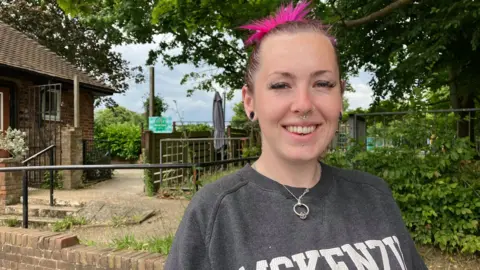 Louise Parry/BBC
Louise Parry/BBC
Yasmine Alderman would like more to be done to close the housing affordability gap in places like St Albans
For people like Ms Alderman, the situation is "frustrating".
"It is ridiculously expensive at the minute and I don't think there's much out there to get you on the property ladder," she says.
"It is not going to be any time soon that I will be able to afford a house in St Albans."
She wants a renewed focus from those in power to help people like her own their own homes.

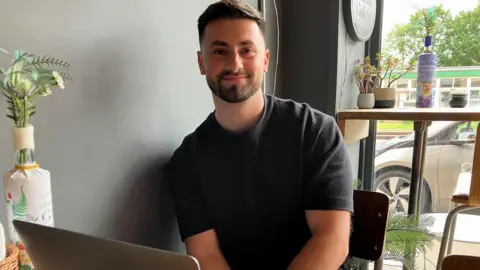 Louise Parry/BBC
Louise Parry/BBC
Freelancer Alex Haddon fears he might never be able to afford to buy in St Albans
Alex Haddon, 28, rents a one-bedroom flat above a shop in St Albans.
Like others, he loves the city, describing it as a "bubble" that combines an ancient history with a "London vibe".
"There's a hustle and a bustle with lots of young people," he says. "I love it here, it is a shame it is so expensive but I kind of understand why."
He doubts he will ever be able to buy a home in the city because, as a freelance video content creator, he fears house prices here will get "further and further away" from what he can afford.
He says the cost of housing has long been an issue. When he was at school, he and his friends jokingly referred to St Albans as "neverland" because they "would never be able to afford a house" there.
The nearest he came to buying, he says, was a few years ago when he looked at a tiny studio "like a shed" which was up for about £300,000.
"That's when you realise what you get for your money," he says.
Mr Haddon says the price of housing was a key issue and urged those in power "to look out for younger people".



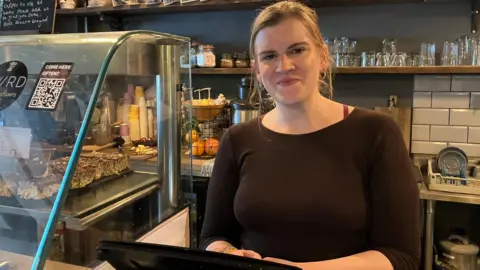 Louise Parry/BBC
Louise Parry/BBC
Jess Distill describes her living situation as "unusual"
Jess Distill, who works in a cafe, is 37 and has lived her whole life - except for university - in St Albans.
Her living situation is, she says, "rather unusual".
Her parents "left home before we did", she says, describing how they bought a canal boat in retirement leaving the children with the family home.
When the pandemic arrived, however, her parents returned home and Ms Distill has now found herself living not only with her parents but with her sister and brother-in-law too.
"It has its pros and cons," she says. "It is probably quite unusual for somebody my age to be living at home with their parents - but it is very nice for me financially.
"I live rent-free," she says. "I would love to have my own place just to have that little extra space and freedom.
"But I work part-time on minimum wage so there's no way I'm putting down a deposit on a place at the moment."
She says she is not alone in her friendship group to have moved back home with parents because of the cost of housing.
"I feel we are being told as a generation to choose between finding and making that money to buy a house and living and enjoying your life," she says.

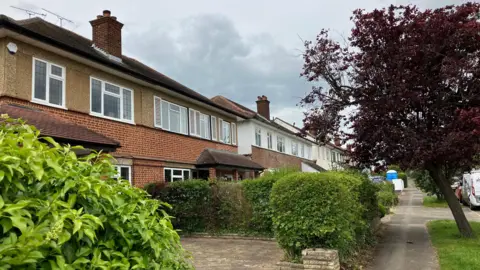 Louise Parry/BBC
Louise Parry/BBC
Average house prices in leafy St Albans are more than 17 times the median salary
Even those friends who have their own homes, says Ms Distill, are often worried about where their next mortgage or rent payment is "coming from".
"A lot are choosing between paying their rent or mortgage and putting food on the table.
"Both the housing and the job markets are very difficult."
She says she would like to see "more housing opportunities for young people and actually make them affordable".
"So often I see the phrase 'affordable housing' and I'm wondering who it is affordable to?"
Ms Distill says she wants greater effort on repurposing empty buildings for housing and putting a limit on multiple home ownership.

 Maisy Jay
Maisy Jay
Student Maisy Jay says huge changes would be needed to make housing more affordable
St Albans born and bred, Maisy Jay has just finished her second year in sociology and criminology at the University of Manchester.
Although she would like to have a home of her own one day she doubts she would be able to afford to settle in St Albans in the short to medium term because of the price of housing there.
"Even if you could afford to buy a place there, the cost of everything else has gone up so much across the board," she says.
Ms Jay doubts whether there is much politicians can realistically do to make house prices in places like St Albans more affordable.
She says the only solution is for a lot more housing to be built and for "people to be paid a lot more money".
Ms Jay wonders whether the technology and the advent of working from home, which became far more prevalent during the pandemic, might lower future demand in popular commuter towns.

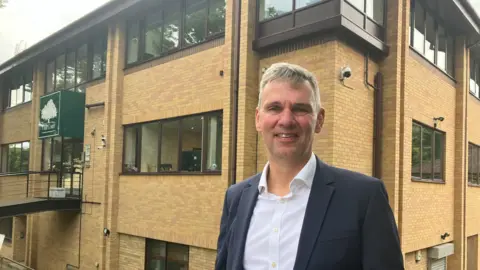 Louise Parry/BBC
Louise Parry/BBC
Estate agent Chris Cooke says several office blocks in St Albans have been turned into residential flats
Turning former offices into housing is something that has happened in St Albans.
Chris Cooke, a director at Daniels estate agents in St Albans, says those properties - which are usually 25% cheaper per sq ft than their traditional city centre counterparts - have been sold.
"Many of the buyers we see are people coming out of central London or indeed locals who are being helped by the bank of mum and dad and often grandparents too.
"It is a concern for the future and we're doing what we can."
What are the parties promising?
The Conservatives would build homes, prioritising brownfield development. They would permanently waive stamp duty tax for first-time buyers of properties costing up to £425,000. This threshold was raised temporarily and is due to revert to £300,000 in March 2025.
Labour would reform planning rules, fast-forward development on brownfield and what it calls “grey belt” land such as car parks. It wants to extend an existing scheme, which helps people get a mortgage with a smaller deposit and is backing more rights for renters.
The Liberal Democrats want additional social housing and new “garden cities”. They support local authorities that want to end the "right to buy" policy for council housing, ban no-fault evictions, make three-year tenancies the default, and create a national register of licensed landlords.
The Green Party would invest in new social housing and bring empty properties back into use. They would set higher environmental standards for new builds and would require more affordable units. They support rent controls and an eviction ban.
Reform UK would fast-track planning, offer tax incentives for development on brownfield sites and give tax breaks to small-scale landlords. People born in the UK would be given priority for social housing.

 6 months ago
25
6 months ago
25



